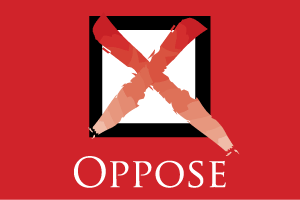 A California Chamber of Commerce-opposed bill that launches the state toward establishing an expensive and untested state-run health care system has been placed on suspense by the Assembly Appropriations Committee, but will be acted upon when legislators reconvene from summer recess.
A California Chamber of Commerce-opposed bill that launches the state toward establishing an expensive and untested state-run health care system has been placed on suspense by the Assembly Appropriations Committee, but will be acted upon when legislators reconvene from summer recess.
The bill, SB 770 (Wiener; D-San Francisco), directs the state to create a workgroup to petition the federal government to redirect hundreds of billions of dollars in Medicare and Medi-Cal funding to a costly new, untested state-run health care system.
“SB 770’s ultimate goal is to force all Californians out of their existing health coverage—including Medicare, employer-based coverage and ACA [Affordable Care Act] plans— and into a new untested government-run system, with no ability to opt out or choose private coverage instead,” the CalChamber said in an opposition letter.
Requires Massive Tax Increases
Single payer is projected to cost more than $500 billion a year, requiring large tax increases on individuals, employers and small businesses.
The CalChamber pointed out that even if SB 770 is effective in seeking a waiver from the federal government to eliminate Medicare and Medi-Cal in California and replace it with an untested new system, it would still require raising taxes by roughly $300 billion a year or $3 trillion in the first decade alone.
Moreover, the federal waiver SB 770 seeks is not permanent. Even if Congress were to allow such a waiver now, there are no guarantees and no legal mechanisms to ensure that a later Congress wouldn’t revoke the waiver, the CalChamber warned. This would potentially eliminate 40% of the funding for California’s supposed future new health care system, throwing it into chaos and jeopardizing patient care for all Californians.
“We should not gamble Californians’ health care on the politics or actions of future Congresses,” the CalChamber stressed.
Would Massively Disrupt Patients’ Health Care
SB 770’s goal—single payer—would eliminate all existing health coverage. Under prior single payer proposals, existing health coverage would be replaced with a new government-run program overseen by nine political appointees, who would largely be in control of what benefits are offered, how providers are compensated and how patients will transition to their new doctors. The legislation contains almost no details on this massive transition and no guarantees that patients will be able to keep their doctors, specialists or pharmaceutical or other benefits, the CalChamber said.
Prior versions of single payer have also provided little detail on how California’s health care providers will be compensated, a key feature in ensuring access to care. The CalChamber also pointed out that low provider reimbursement rates within existing publicly funded and administered programs like Medi-Cal have caused chronic shortages in access to care in communities that disproportionally rely on existing state-run programs.
“This bill does not add one provider or facility in California. In fact, moving to state-run government health care could eliminate consumers’ choice of physicians, hospitals, and other providers. We will lose doctors to other states, leading to long wait times for procedures and appointments and reduced access to specialists,” the CalChamber said.
Rather than adopt a costly and untested system that jeopardizes Californians’ health care, the Legislature should “build on the progress we’ve made and pursue constructive, viable solutions to further improve access to affordable health care,” the CalChamber urged.
Staff Contact: Preston Young


